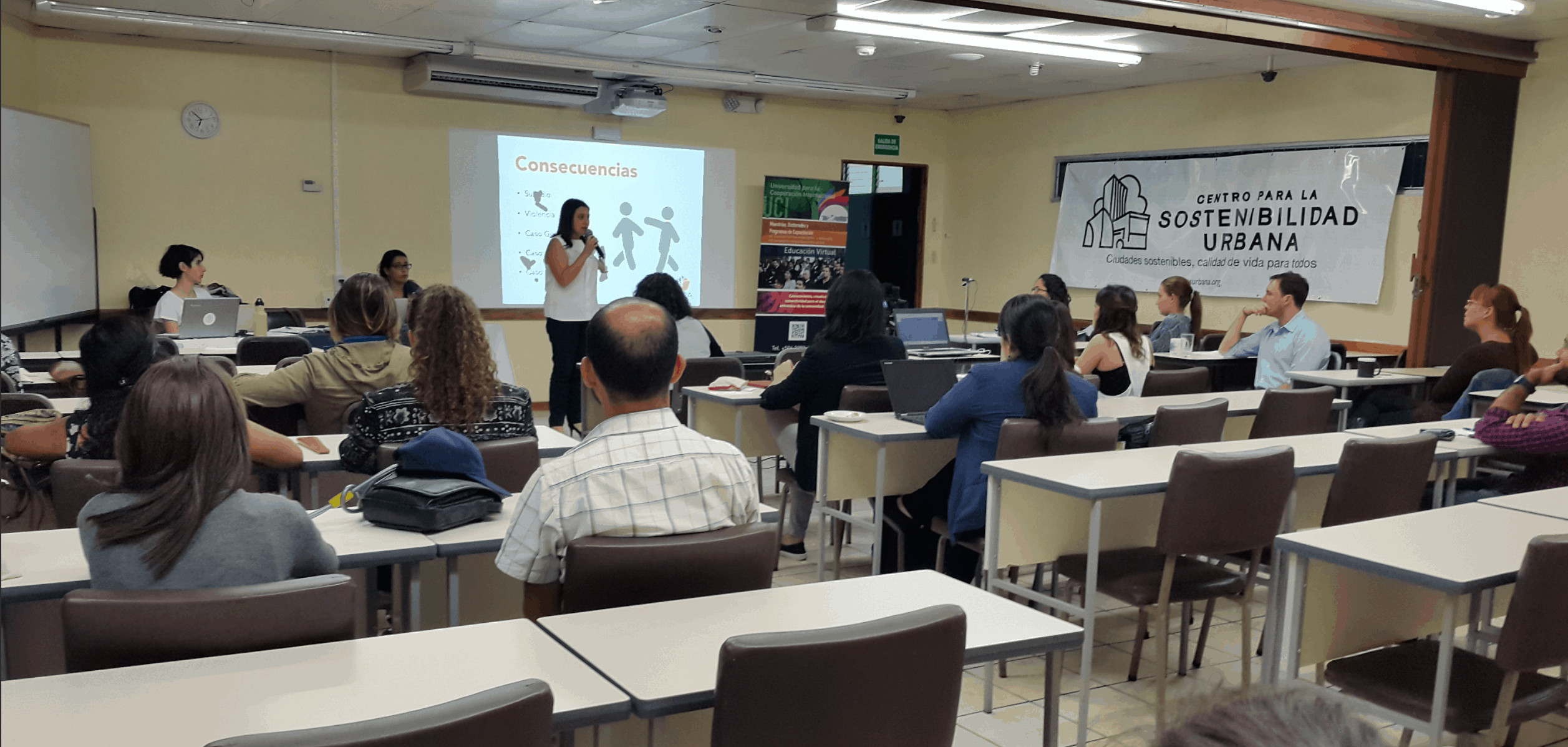Have you ever thought about the role gender plays, or should play, in the way cities and towns are designed and built?
Conversations on that topic took place in San José on March 9, when the Center for Urban Sustainability (CPSU), a nonprofit organization that seeks to improve quality of life in Costa Rican communities, in partnership with the International Cooperation University (UCI), hosted a conference. Led by four women – psychologist Cynthia Castro, economist Nathyeli Acuña, architect Laura Rodríguez, and biologist Andrea Quesada – the event examined a wide array of issues related to gender and urbanism.
These included improving urban mobility from a gender perspective; the development and design of inclusive public spaces; the development of green, decent, and gender-responsive jobs; and the importance of gender equality to sustainable development.
“The women living in [Costa Rican] cities are housewives, single mothers or elderly women,” said Andrea San Gil, founder of CPSU, at the conference. Urban centers “have not yet adapted and do not provide the infrastructure opportunities and services that both genders need.”
CPSU follows One Planet Living’s principles of sustainability to achieve a sustainable city and community. These principles include the incorporation of elements such as clean energy, sustainable transport, locally-sourced, sustainable materials, sustainable water, natural habitats, wildlife and biodiversity, heritage and culture, equality and local economy, and health and happiness.
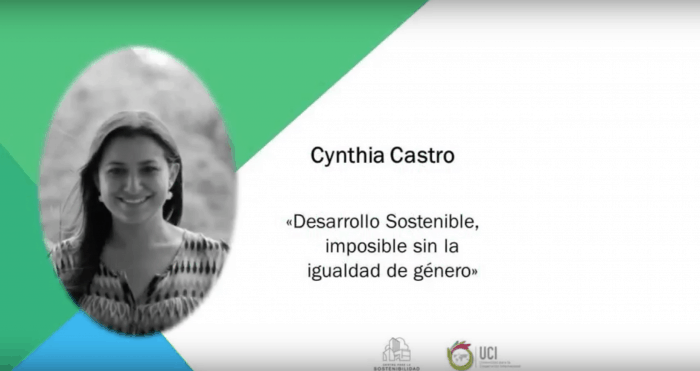
Castro spoke about the importance of gender equality to sustainable development, going back to the way children are raised.
“Men were taught since they were children that they can’t express any of their emotions and must show it through anger,” she said. “This has consequences for both men and women. Oftentimes it’s believed that it’s a topic for women only; women in Costa Rica get more depressed, but more men commit suicide, and that has to do with the management of emotions.”
She ticked off various recent cases of violence due to this gender unsustainability.
“We’ve got the Gerardo [Cruz] case and also the recent event in which a pregnant woman was assaulted and lost her baby in a public space. This means that [women’s] capacity to be able to use a public space is completely affected. Our cities are being affected. We’ve also got the Matapalo [murder] case, which became a discussion topic in which people blame both the man and woman. In Costa Rica 1 out of 3 women has been a victim of domestic violence. This inequality has consequences for all of us,” Castro said.
She added that while 63% of university degrees go to women in Costa Rica, the unemployment rate for women is higher. Costa Rican women earn 28% less than men, while simultaneously reinvesting much more of that income (90% for women compared to 30-40% for men, according to the World Bank) of that income in their “city, community, education, and health.”
Conference leaders turned their attention to ways urban planning can help reverse these trends.
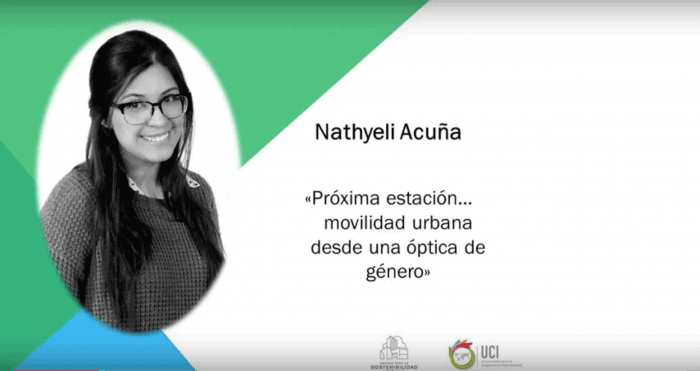
“The public transportation system is one of [Costa Rica’s] most lucrative sectors,” said Nathyeli Acuña. “One of the benefits from the inversion in gender equality on the public transportation system is the augmentation of the infrastructure and profitability patterns. This means that if women use public transportation more, the companies will have more money, and that will be redistributed towards the rest of the city… This also improves women’s access to other economic, social and educational rights.”
In order to create balance within the public transportation system, both women’s and men’s distinct needs must be taken into account, she argued, using their different security needs as an example.
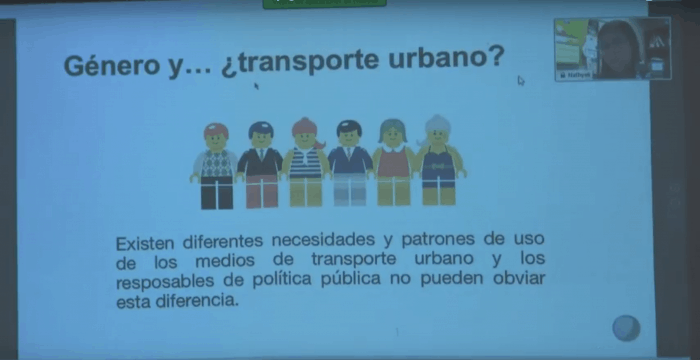
“Men and women don’t access the public transportation system in the same way. Women are victims of violence with much more frequency than men within the infrastructure sector, and women tend to use public transportation system less often [as a result],” Acuña explained. “This is a loss of public space, and it limits access to jobs, political and social status.”
Public transportation is just one example of a public space that must be improved and made more inclusive. Architect Laura Rodríguez spoke about the importance behind a well-designed public space that seeks for the inclusion of all the community members.
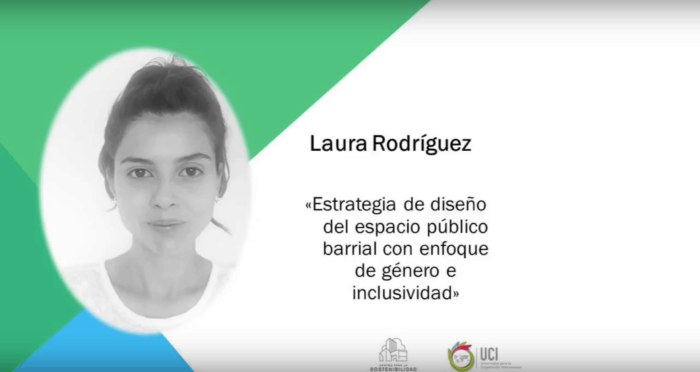
“It’s about knowing for whom we’re designing and what possibilities we’re giving to different people,” Rodríguez said.
“There’s productive work, which is the work we get paid for outside of the home. Generally, this work is given to men and takes place within a public space. Women are still carrying out a lot of the reproductive work, which is taking care of children or elderly members from their families, and they have to clean their homes. We’ve also got community work, which is the work done to solve the community’s problems. Many of the reasons why community work takes place is because women stay more at home and have more time to gather in order to help the community,” Rodríguez added.
She advocated for changes such as the creation of more care centers for both children and elderly people. When this happens, both children and elderly people become more independent, and the family members who usually take care of them can go out and work, bringing down poverty rates.
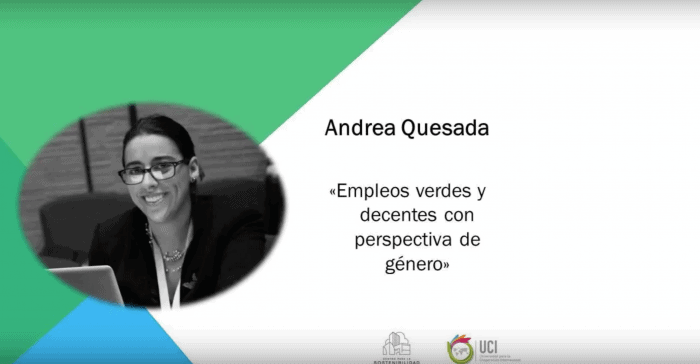
Finally, biologist Quesada spoke about the development of green and gender-responsive jobs: work related to the environment that contributes to a more sustainable world.
“This is a relatively new topic and because it’s relatively new, we’ve got to understand the social landscape: the gaps between genders, the existent realities, and different perceptions,” Quesada said. “According to one of the United Nations’s 2015 statistics reports, two thirds of the world’s 781 million illiterate adults are women. Of working-age adults, 77% of men participate in the labor force, and only 50% of women. And a World Bank study found that 90% of 173 countries analyzed have a law or regulation that significantly reduces women’s economic opportunities,” Quesada said.
Green jobs must be created based on a basic understanding of this inequality and the needs of each country, she added.

